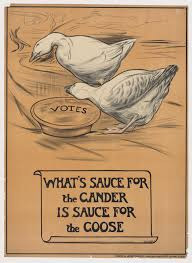Available at Amazon: Unjust Debts: How Our Bankruptcy System Makes America More Unequal
But purchasing from your local bookstore is certainly better. The first person to ask, will get my copy to read and then pass forward.
Summary From the inside cover:
Bankruptcy is the busiest federal court in America. In theory, bankruptcy in America exists to cancel or restructure debts for people and companies that have way too many—a safety valve designed to provide a mechanism for restarting lives and businesses when things go wrong financially.
In this brilliant and paradigm-shifting book, legal scholar Melissa B. Jacoby shows how bankruptcy has also become an escape hatch for powerful individuals, corporations, and governments, contributing in unseen and poorly understood ways to race, gender, and class inequality in America. When cities go bankrupt, for example, police unions enjoy added leverage while police brutality victims are denied a seat at the negotiating table; the system is more forgiving of civil rights abuses than of the parking tickets disproportionately distributed in African American neighborhoods. Across a broad range of crucial issues, Unjust Debts reveals the hidden mechanisms by which bankruptcy impacts everything from sexual harassment to health care, police violence to employment discrimination, and the opioid crisis to gun violence.
In the tradition of Matthew Desmond’s groundbreaking Evicted, Unjust Debts is a riveting and original work of accessible scholarship with huge implications for ordinary people and will set the terms of debate for this vital subject.
Table of Contents:
- Bankruptcy for Real People
- Race Disparities in Bankruptcy for Real People
- Bankruptcy for Fake People
- Civil Rights in a Bankrupt City
- My Money, My Rules
- From Overindebtedness to Liability Management
- Beyond the Victory Lap
Commentary:
From the perspective of the consumer debtor's bar, the overwhelming benefits that Chapter 11 debtors receive compared to Chapter 13 debtors. These include the "front-loaded" discharge at confirmation, the absence of a trustee, third-party releases (contrast the Sacklers and their modest contributions to the plan with the requirement in Chapter 13 that co-signed debts require payment in full to grant just a stay and not a discharge), longer periods over which to pay secured and priority debts, binding creditors with misleading voting, the broad deference given to "non-standard" plan provisions, etc. (Many of these Chapter11 benefits would be available to consumers through the Chapter 10 envisioned in Sen. Elizabeth Warren's Consumer Bankruptcy Reform Act.)
But Chapter 11 is available to individuals as well...

The main reason that individuals don't file Chapter 11 cases is the expense, the lack of expertise in the consumer debtor's bar, and that regular Chapter 11 attorneys don't want to deal with the unwashed masses. (Otherwise you might see them handle a pro bono SLAP every now and then.)
So what if, in addition to excellent public-facing scholarship such as this, law school professors also helped teach law students and practicing attorneys how to file simple "pre-packaged" or "cookie cutter" Chapter 11 cases for everyday people?
Dumb it down, give consumer form pleadings, Best Case for Chapter 11 and call it "Chapter 24" (11+13), so that can churn these out, even if we're not $2500/hr Tall Building Lawyers.
Not only would real people start to get the same advantages that fake people (i.e. corporations) have long taken advantage of in Chapter 11, but the courts and Congress might, under a sudden groaning burden of regular folks sloppily filing disclosure statements and appearing on first day orders, start to consider rebalancing the bankruptcy system. (Not to mention the terror-filled response that the consumer financial services industry would have.)
Heck, for less than $10 consumers could get a Post Office Box in Wilmington, Delaware and take advantage of that court's vaunted bankruptcy expertise.
Other reviews and interviews:
- Publisher's Weekly: Fake People, Real Obligations: PW Talks with Melissa B. Jacoby
- Kirkus Reviews: Unjust Debts- An impassioned plea for confining bankruptcy to its core purpose of resolving just debts justly.
Upcoming Events:
Melissa Jacoby on Unjust Debts at Quail Ridge Books
June 13, 2024, Raleigh NC
Melissa Jacoby on Unjust Debts at Flyleaf Books
June 18, 2024, Chapel Hill NC
Melissa Jacoby on Unjust Debts at Greenlight Bookstore
June 27, 2024, Brooklyn NY


Blog comments